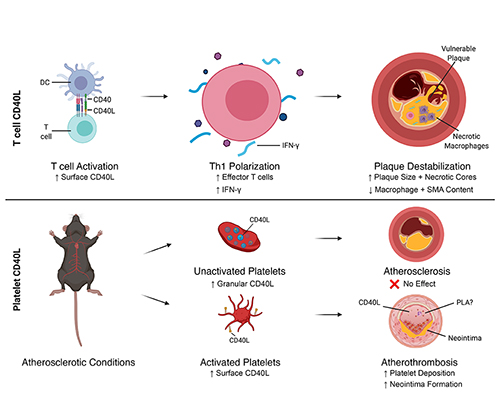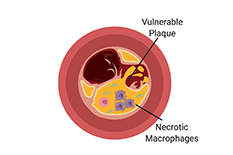Atherosclerosis is characterized by the build-up of cholesterol and other fatty metabolites in the arterial wall directly below the endothelial cell layer, which is in direct contact with the bloodstream. This process results in constriction of the artery, which obstructs blood flow and can trigger heart attacks and strokes. Atherosclerosis is generally treated with drugs that reduce the concentration of lipids in the circulation, often using compounds called statins. However, statins effectively reduce the risk of cardiovascular disease in only 35 to 40% of the patients treated. The remaining 60% fail to respond to the medication.
This has prompted the search for other drug targets. Since atherosclerosis is linked to chronic inflammatory processes, the immune system might offer new therapeutic options for tackling the disease. A group of researchers led by Professor Esther Lutgens and Dr. Dorothee Atzler from the LMU Medical Center have now elucidated an important component of the immune reaction involved in atherogenesis.

Lacy et al. have now shown that the interaction between proteins called CD40L and CD40 represents a promising drug target for the suppression of atherosclerosis. The protein CD40L is synthesized by, and expressed on the surface of specialized cells of the immune system. It is recognized by the CD40 protein, a membrane-bound receptor that is expressed on antigen-presenting cells. Their group is now extending their studies of the effects of CD40 und CD40L to other cell types, with the aim of developing drugs that can inhibit the functions of these proteins in a cell-specific fashion.

